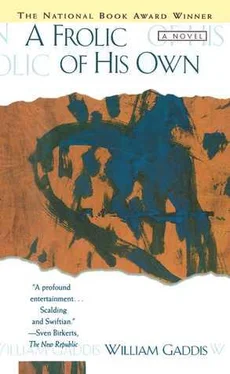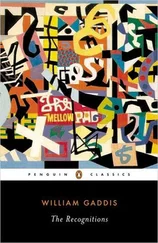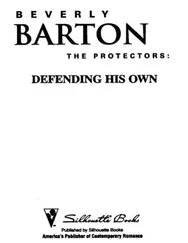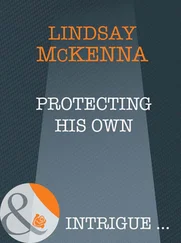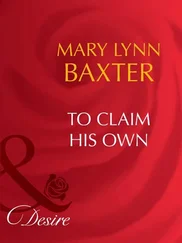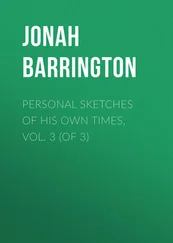(Document marked Defendants' Exhibit 11 for identiñcation as of this date.)
Q Your attention is directed to Defendants' Exhibit 11. Will you read it, please.
A Yes. I, Oscar L…
Q To yourself.
A I've read it.
Q And you can identify it for the record of your own knowledge and belief as your sworn affidavit describing a letter of rejection addressed to you and purportedly written and signed by the defendant named therein as Jonathan Livingston, whose professional interest you had solicited on behalf of and as sole author and proprietor of a play titled Once at Antietam, these events taking place on or around the dates indicated therein?
A Yes.
Q Dates which occurred quite a long time ago?
A Depending on how, on what you call a long time ago.
Q I would call a decade, well over a decade in fact, long enough for routine incidents of no particular interest when they took place to have fallen through the cracks of memory, as it were? Now would it be fair to say, sir, that a man beginning such a career working as both producer and director of a highly successful dramatic television series might, in the routine course of a busy day, be expected to receive numerous unsolicited proposals in the form of concepts, treatments, or scripts from aspiring playwrights in the high hopes that under his artistic and professional supervision their ambitions for their works will be realized and suitably rewarded? A Yes.
Q Rewarded financially? A Yes.
Q That in fact this hunger for financial reward might in many cases be the driving force behind the creation of the work in the first place? A In too many cases, yes. Q But not your own?
A As the driving force behind its creation no, no that's not why I wrote it.
Q But as the driving force behind its submission.
MR.BASIE: Again, you've made a statement. That was not a question.
MR.MADHAR PAI: Please don't interrupt the answer.
MR.BASIE: I object to the form of the question.
MR.MADHAR PAI: Mr. Basie, that is grotesquely improper. I am not a man of temper but that is just plain unprofessional. I wish you wouldn't do it.
MR.BASIE: I am entitled to object to the form of the question.
MR.MADHAR PAI: You may object if you will, but don't interrupt the answer. I am trying to go ahead smoothly here so that we may get to the heart of the matter before we break. MR.BASIE: Break? THE WITNESS: Break, on thy cold grey stones, O…
MR.MADHAR PAI: May I ask you to restrain the witness, Harold?
MR.BASIE: I don't understand your request.
MR.MADHAR PAI: I think it is obvious that he is not responding to the question. Would you read the question back.
Q Mr. Crease, if you understand it when it is read back, I would like your answer. If you feel that you cannot answer will you simply say, I cannot answer. I'd like to move this along before we break for lunch.
A I cannot answer.
Q Thank you. We were speaking of the public taste. Now in the case of television, of the television audience, this would embrace a very wide public would it not?
A Yes it would, yes.
Q One whose level of refinement, sensitivity, intelligence, attention span has often been described in terms of the lowest common denominator?
A The great unwashed, yes. Sweep on, you fat and greasy citizens!
MR.MADHAR PAI: Mr. Basie, you have no objection to that response remaining in the record?
MR.BASIE: No objection. MR.MADHAR PAI: And the witness of course is aware that he is under oath.
Q And it was, in effect, according to your sworn complaint, to this forum that you submitted your work titled Once at Antietam?
A Yes.
Q Had you or have you since made numerous other such submissions of your work, other plays for example?
A No.
Q Have you sold any such work or works in this market?
A None, no.
Q And because of the money involved, may we infer that it is a highly competitive environment?
A I would think so, yes.
Q Still you had what we might call the audacity to try to enter this unsavoury environment with one lone, pristine product of your own unique vision, like the painting which brought fifty million dollars by the artist who was unable to sell his work during his lifetime. A For the irises, yes. Q For what?
A Fifty three point nine million, it was a painting of irises.
Q May I direct you to answer the question.
MR.BASIE: I have to direct him not to answer.
MR.MADHAR PAI: Are you objecting, Mr. Basie?
MR.BASIE: It was not a question.
It was a statement. He was simply trying to set the record straight.
MR.MADHAR PAI: He is not here to set the record straight. He is here to be examined.
MR.BASIE: He is under oath. MR.MADHAR PAI: That is the nature of this proceeding, and it does not oblige him to talk about irises. Will you read it back, please.
(Record is read.) Q Will you tell me if you agree. A It seems a little far fetched, but… Q Will you answer my question? A Yes.
Q Fine. Now let's go ahead if there's no objection.
MR.BASIE: I want something clarified here.
MR.MADHAR PAI: What is it now, Harold. Are you objecting?
MR.BASIE: The witness was asked whether he would answer the question. His answer was yes. I want it to be Clear Whether he meant yes, he would answer the question but had not yet done so, or whether counsel is abusing his privilege in assuming that the witness's response expressed his agreement with counsel's statement. MR.MADHAR PAI: Read it back.
(Record read.)
Q Would you agree to that? You may answer simply yes or no.
A Well I, for the sake of the argument, yes.
Q Good. I believe we're making some headway. Now since you appear to like to associate yourself with Shakespeare, might not this dramatic work of yours in its lonely search for an audience have perhaps been better suited to the mercies of the rather more narrow, elitist theatre going public which we agreed his plays call forth?
A No.
Q Do you understand the question?
A We did not agree on this narrow, elitist notion. He was a very popular playwright.
Q I take it you mean in his own time?
A That's when he wrote his plays, isn't it? For the whole general public, he played to the stalls and to the pits.
Q He made his living at it then, didn't he?
A Well he owned shares in his acting company too so he got a percentage of the profits and he was in real estate too, I think he even lent out money at exorbitant rates if you just read the Merchant of…
Q But we could certainly call him a professional playwright, couldn't we?
A Of course. He acted in some of them too.
Q Yes. And when you say the pits, you are characterizing this television fare that's addressed to the lowest common denominator, what's envisioned when we say, it's the pits? The great unwashed, in your own pungent phrase?
A The pit was the cheap section of the theatre behind the stalls at the front of the orchestra, yes. Yes it probably got pretty rank on a warm evening with the orange peels thrown in.
Q I'm sure. Now this broad audience, they were all fairly familiar with the material of the plays, the plots and stories, were they not?
A Yes, generally speaking.
Q How so? Can you be more specific?
A Well, Shakespeare took his material from familiar sources, contemporary fictions like the romance Rosalynde where he got As You Like It, All's Well That Ends Well from Boccaccio's Decameron, things like that.
Q All right. And the later historical plays, he raided Holinshed's Chronicles of England, Scotland and Ireland pretty freely didn't he, for Richard III and the Scottish history in Macbeth, even for King Lear? And Plutarch, he lifted Antony and Cleopatra and Julius Caesar right out of Plutarch didn't he?
A I wouldn't say lifted, he…
Читать дальше
